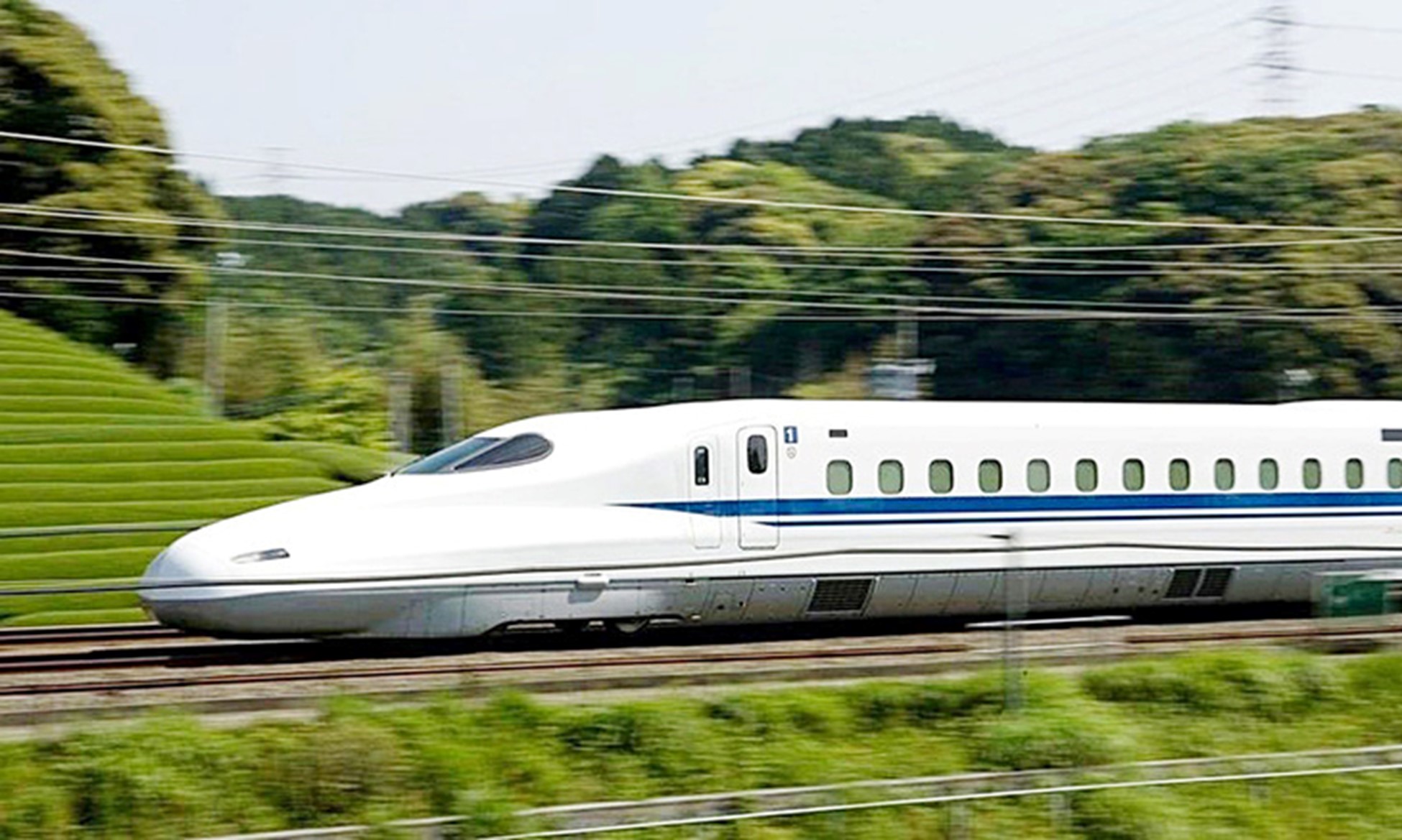Hoa Phat Group, the largest steel producer in Vietnam, has announced that it is deliberating on the manufacturing of tracks for high-speed railways with a planned speed of 850 kilometers per hour, which has surprised many experts.
Professor Dr. Bui Xuan Phong, former chairman of the Vietnam Economics and Railway Transport Association, told Tuoi Tre (Youth) newspaper that plans to develop high-speed railways by Hoa Phat or any other enterprises are worth supporting.
However, the North-South express railway project remains on paper.
Technologies which will be applied to the project and the speed that the railway will allow remain unknown.
Hoa Phat's project, if implemented, will demand advanced techniques due to the rapid wear and tear associated with high-speed railways.
This complexity may surpass the capabilities of many enterprises and even countries, Phong said.
He added that there is no ground to say Hoa Phat can or cannot execute the project. However, it will likely have to import technologies and human resources.
As a result, the project will be costly and it is not certain when it will be commenced, Phong said.
Hoa Phat Group produces steel billets, construction steel, and hot-rolled coil steel, but materials for high-speed railways are a completely different matter.
The expert mentioned that high-speed railway projects require significant investments and intricate techniques, with uncertainties surrounding their efficiency and lifespan.
According to former Deputy Minister of Transport La Ngoc Khue, tracks for express railways are not overly sophisticated but they do require high steel quality.
Current railways allow maximum speeds of some 450 kilometers per hour, so he was surprised at Hoa Phat’s plan.
Vietnam has not established the criteria for high-speed rail tracks but other countries have. Hoa Phat’s products, once completed, can be appraised in other countries, Khue added.
No Vietnamese steel maker has been involved in rail track manufacturing, the ex-official said, noting that it is good if they can join.
If they manage to research and manufacture such products successfully, they can export them, especially if Vietnam has not adopted them yet.
Associate Professor Dr. Nguyen Hong Thai, dean of the Faculty of Transport Economics at the University of Transport and Communications, said enterprises should be incentivized to increase their focus on studying and entering high-tech sectors.
Hoa Phat Group’s announcement to study and produce tracks for 850-kilometer-per-hour railways has aroused mixed opinions.
Some cast doubt on its ability to do the job as the world currently has railways allowing maximum speeds of lower than 500 kilometers per hour only.
Thai said it would be extremely hard for Hoa Phat to make the plan a success due to limited technologies in Vietnam.
The group will have to calculate the investment and feasibility of the project, better than anyone else, Thai confirmed.
While acknowledging that it may take Hoa Phat a considerable amount of time to research and implement the project, he said that dreams should not be hindered by the duration or effort involved.
However, he stressed the paramount importance of ensuring the safety of the tracks. Therefore, enterprises should seek guidance from other countries and incorporate advanced technologies.
Hoa Phat Group chairman Tran Dinh Long admitted to Tuoi Tre that it is extremely hard to manufacture tracks for high-speed rail lines.
However, the group is not fearful of hardship, Long added.
The billionaire affirmed that his group has the capacity to invest in the project, and it is currently in the research stage. It is employing experienced foreign experts for the job.
The project is in line with the group’s core business, according to Long.
Like us on Facebook or follow us on Twitter to get the latest news about Vietnam!





















































